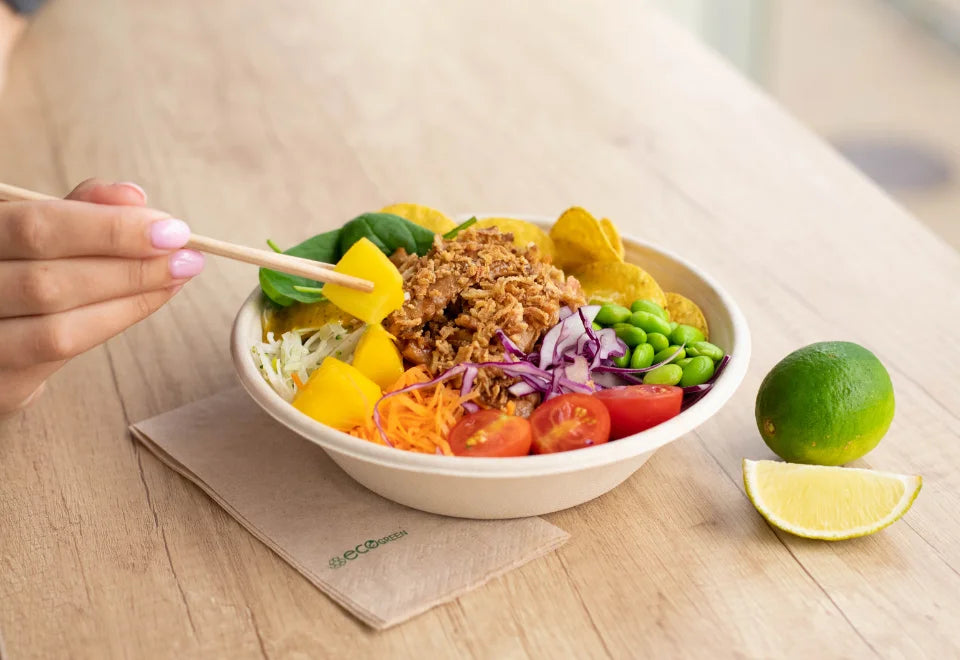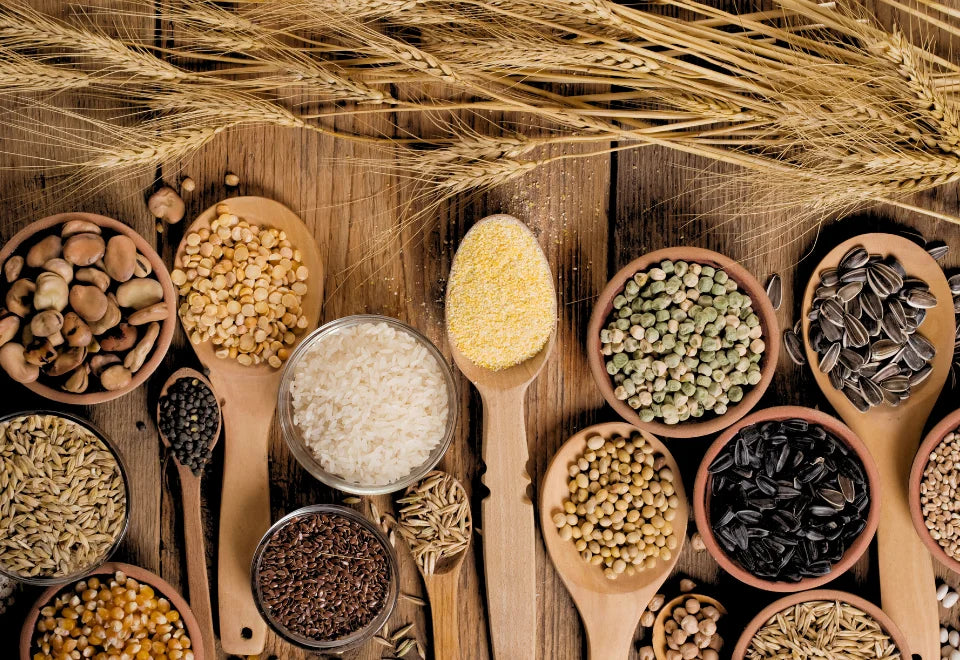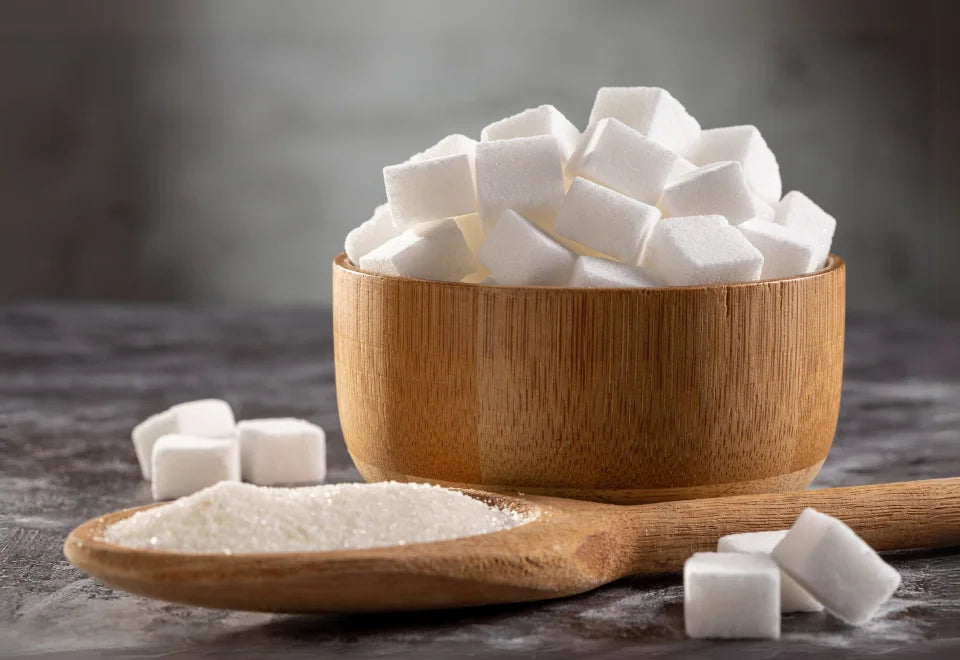The nutrients in the food we eat not only nourish our bodies but also serve as fuel for the beneficial microorganisms in our digestive system, known as the gut microbiome. The body breaks down undigested food into various substances. Thus, what we eat shapes the structure, composition, and function of the microbiome, which interacts with the gut epithelium and mucosal immune system and maintains intestinal homeostasis in a healthy state. Changes in the microbial composition are connected to various illnesses many researchers are now exploring the use of nutritional therapy to influence the biome when treating gut imbalance. Understanding how diet affects the way the microbiome and the body's immune system interact is important for creating dietary plans that can keep the gut healthy and help bring back a balanced microbiome.
Why Gut Health Matters More Than You Think
Our gut, home to trillions of tiny microbes collectively known as the gut microbiome, plays a crucial role in our overall health. This diverse community of bacteria impacts everything, from digestion to immunity. Every host (human) has at least 160 out of the total 1150 species found in the gut, and a healthy balance is key. A well-functioning and healthy microbiome is identified by a diverse collection of bacteria, viruses, archaea, fungi, etc. each possessing unique abilities for breaking down various substances and operating in harmony. Their metabolism can rapidly transition between substrates obtained from our food, based on their availability. By producing a variety of metabolites, the microorganisms in the gut engage with the gut lining and the immune system. This interaction helps to keep the balance in the gut, establishing a symbiotic relationship with the host. When this balance is disrupted, a condition called dysbiosis occurs, linked to issues many issues affecting the immune system, mental health, metabolic disorders – such as type 2 diabetes, gastrointestinal disorders – such as irritable bowel syndrome and inflammatory bowel disease, cardiovascular health, sleep and mood as well. Excitingly, research shows that we can influence our gut health through food, opening doors to new dietary and nutritional strategies for improving well-being.
Why Diet Matters for Microbiome Balance
Food significantly influences gut homeostasis and the microbiome's diversity, composition, and function. A balanced diet supports gut health by maintaining the intestinal barrier, immune system tolerance, and normal physiology. Conversely, an imbalanced diet, like the Western diet, can reduce microbiome diversity, leading to dysbiosis, a potential cause of conditions. (P. Zhang, 2022)
The gut microbiome relies on nutrients from our diet to produce vital substances such as bile acids and short-chain fatty acids, crucial for overall health. Microbial diversity tends to peak in adulthood, remaining stable in healthy adults. Reduced diversity, associated with issues like obesity and inflammatory diseases, may contribute to disease development. (Wu et al., 2020)
Top 5 Recipes for Gut Health
Healthy gut recipes don't have to be expensive or complicated; many traditional foods are rich in nutrients that support digestive health. Here are some simple recipes to promote digestive wellness:
Ragi Uttapam/Finger millet
One of the primary benefits of ragi is its rich calcium content, making it an excellent choice for bone health. The whole ragi retains its fibre content, ensuring you get the maximum health benefits. When combined with idli rice and urad dal, it creates a balanced meal that's both tasty and nutritious.
Recipe by: Rekha Kakkar
Ingredients
For the Batter:
- 1 cup Whole Ragi Finger Millet
- 1 cup Idli Rice: 1 cup
- 0.75 cup Urad Dal Split black gram
- 1 teaspoon Fenugreek Seeds Methi
- Salt
- Water
For the Topping:
- 1 Beetroot grated
- 1 Carrot grated
- 2 Green Chillies finely chopped (optional)
Instructions
Preparing the Batter:
- Wash and soak the ragi, idli rice, urad dal, and fenugreek seeds separately in water for at least 5-6 hours.
- Drain the water and grind the ingredients together in a mixer or grinder, adding water little by little, until you get a smooth batter.
- Transfer the batter to a large bowl, add salt, and mix well.
- Cover the bowl and allow the batter to ferment overnight or for at least 8 hours.
Preparing the Topping:
- In a mixing bowl, combine the grated beetroot, grated carrot, chopped green chillies, and fresh coriander leaves. Add a pinch of salt and mix well. Set aside.
- Making the Ragi Uttapam:
- Heat a non-stick tawa or griddle on medium flame.
- Once hot, pour a ladleful of the fermented batter onto the tawa and spread it gently to form a circular shape.
- Sprinkle a generous amount of the beetroot and carrot mixture evenly over the uttapam.
- Drizzle a little oil or ghee around the edges and let it cook for 2-3 minutes or until the bottom turns golden brown.
- Flip the uttapam carefully and cook the other side for another 2 minutes.
- Remove from the tawa and serve hot.
Nutrition
Calories: 251kcal | Carbohydrates: 52g | Protein: 9g | Fat: 1g | Saturated Fat: 0.1g | Polyunsaturated Fat: 0.2g | Monounsaturated Fat: 0.3g | Sodium: 57mg | Potassium: 209mg | Fiber: 5g | Sugar: 1g | Vitamin A: 1278IU | Vitamin C: 3mg | Calcium: 124mg | Iron: 3mg
Beet and Pomegranate Salad Recipe
Beets are particularly rich in folate, manganese, magnesium, nitrates, and copper. These are good for heart health and energy production in the body. Beet and Pomegranate Salad is also rich in fibre, which keeps you full for a longer duration.
Recipe by Rekha Kakkar
Ingredients
- 1 cup beetroot boiled, peeled and sliced
- ½ cup pomegranate seeds
- 1 teaspoon olive oil extra virgin
- 1 teaspoon Lemon juice
- 2 tablespoons Mint leaves chopped
- Salt to taste
- 1 tablespoon feta cheese
- 1 tablespoon pumpkin seeds
Instructions
- In a medium bowl, combine the beet and pomegranate seeds.
- Drizzle with olive oil and lemon juice, and season with salt and to taste.
- Add chopped mint and toss to combine.
- Serve immediately, or store in the fridge for later. Enjoy!
Nutrition
Calories: 170kcal | Carbohydrates: 30g | Protein: 4g | Fat: 5g | Saturated Fat: 1g | Polyunsaturated Fat: 1g | Monounsaturated Fat: 3g | Sodium: 112mg | Potassium: 698mg | Fiber: 8g | Sugar: 21g | Vitamin A: 470IU | Vitamin C: 20mg | Calcium: 55mg | Iron: 2mg
Kanji Recipe
Kanji is an Indian fermented drink. Homemade North Indian beetroot and carrot kanji. Carrots, water, and spices are fermented to make this traditional North Indian probiotic drink. Kanji drinks are rich in antioxidants and dietary fibres. It is also a good source of vitamin K, vitamin C, potassium, and manganese.
Recipe by: Rekha Kakkar
Ingredients
- 4 carrots medium-sized
- 2 beetroots small-sized
- 8 cups water
- 2 teaspoons red chilli powder cayenne pepper
- 3 tablespoons yellow mustard seeds
- 1 teaspoon black salt
- 1 teaspoon pink salt
- 1 teaspoon whole black peppercorns
Instructions
- Wash and rinse carrots and peel them. Cut into batons or sticks that are 1.5 to 2 inches long.
- Crush the mustard seeds using a grinder or mortar and pestles.
- Add carrots, beets, ground yellow mustard powder, black salt, red chilli powder, and whole peppercorns in a big jar or bottle.
- Fill the jars with normal-temperature water.
- Cover with the lid loosely or muslin/cheesecloth on the mouth of the jars.
- Keep the jars or bottles out of the sun. Allow 2 to 3 days for the drink to ferment and become sour.
- Make sure the drink doesn't get too fermented.
- Stir the mixture with a clean wooden spoon before putting it in the sun the next day.
- Alternatively, instead of mixing with a spoon, shake the jar.
- The carrot kanji is ready when the liquid begins to taste sour.
- Refrigerate the kanji beverage or serve it right away.
Nutrition
Calories: 30kcal | Carbohydrates: 4g | Protein: 1g | Fat: 1g | Saturated Fat: 1g | Polyunsaturated Fat: 1g | Monounsaturated Fat: 1g | Sodium: 426mg | Potassium: 141mg | Fiber: 1g | Sugar: 2g | Vitamin A: 3503IU | Vitamin C: 2mg | Calcium: 24mg | Iron: 1mg
Smashed Chickpeas Sandwich Recipe
Chickpeas are packed with protein, fibre, and many more nutrients. It is especially good for weight loss, enhances digestion, and helps with blood sugar control. The Greek yoghurt enhances the creamy texture while delivering a punch of probiotics beneficial for gut health.
Recipe by: Rekha Kakkar
Ingredients
- 1 cup chickpeas, drained and rinsed
- ½ cup yoghurt, also known as Greek yoghurt
- 1 tablespoon hot chilli sauce; adjust to taste
- 1 tablespoon balsamic vinegar reduction
- ½ teaspoon red chilli flakes; adjust to taste
- ½ teaspoon oregano dried
- Salt and pepper to taste
- 4 slices whole grain bread
Instructions
- Start by preparing the hung yoghurt, if you haven't already. Take regular yoghurt and place it in a muslin cloth or cheesecloth over a bowl. Tie the ends and let it hang for a few hours or overnight in the refrigerator until most of the whey has drained out and the yoghurt has a thick, creamy consistency.
- In a large bowl, add the drained and rinsed chickpeas. Using a fork or a potato masher, begin to smash the chickpeas until most are mashed, but some chunks remain for texture.
- To the mashed chickpeas, add the hung yoghurt, hot chilli sauce, balsamic vinegar reduction, red chilli flakes, and dried oregano.
- Season with salt and pepper to your preference. Mix all the ingredients until they are well combined. The resulting mix should be creamy, with chunks of smashed chickpeas.
- Take a slice of whole grain bread and generously spread the chickpea and yoghurt mixture on it.
- If you prefer, add a layer of fresh lettuce, a slice of tomato, and cucumber for added freshness and crunch.
- Cover with another slice of bread to complete the sandwich. Repeat with the remaining bread and mixture.
- Cut your sandwich into halves or quarters as you prefer, and enjoy!
Nutrition
Calories: 195kcal | Carbohydrates: 30g | Protein: 10g | Fat: 4g | Saturated Fat: 2g | Polyunsaturated Fat: 1g | Monounsaturated Fat: 1g | Cholesterol: 8mg | Sodium: 155mg | Potassium: 386mg | Fiber: 7g | Sugar: 9g | Vitamin A: 291IU | Vitamin C: 3mg | Calcium: 128mg | Iron: 3mg
CFC Tea (cumin fennel and coriander tea)
This tea is well known for its health benefits of detoxing, debloating, helping improve digestion, weight loss, and boosting metabolism.
Recipe by: Rekha Kakkar
Ingredients
- 4 teaspoons cumin seeds
- 4 teaspoons coriander seeds
- 4 teaspoons fennel seeds
Instructions
- To make CFC tea add ½ teaspoon of cumin seeds, coriander seeds and fennel seeds in the boiling water.
- Cover and let it simmer in water for at least 5 minutes, pour and enjoy it warm or hot.
Nutrition
Calories: 20kcal | Carbohydrates: 3g | Protein: 1g | Fat: 1g | Saturated Fat: 1g | Polyunsaturated Fat: 1g | Monounsaturated Fat: 1g | Sodium: 6mg | Potassium: 95mg | Fiber: 2g | Sugar: 1g | Vitamin A: 28IU | Vitamin C: 1mg | Calcium: 57mg | Iron: 2mg
Take Control of Your Gut Health
In conclusion, every gut is unique, much like a fingerprint, and what works for one person may not work for another. While there is no one-size-fits-all approach to gut health, gaining personalised insights through tools like Decode Biome's Gut Microbiome Test can be transformative. This advanced diagnostic tool not only analyses the composition and diversity of microorganisms in the gastrointestinal tract but also provides valuable information about potential imbalances and their impact on overall health.
The Decode Age Gut Microbiome Test offers numerous advantages, including insights into microbiome composition, personalized nutrition recommendations to support a healthy gut, identification of microbial imbalances linked to various health conditions, assessment of disease risks, and optimization of treatment strategies. By understanding the intricate relationship between the gut microbiome and health, individuals can make informed decisions about their diet, lifestyle, and potential preventive measures, paving the way for a healthier and more balanced life.
FAQs:
How can I improve my gut microbiome?
Enhancing gut health requires lifestyle and dietary adjustments. Including dietary fibre in meals promotes regularity, lowers bowel cancer risk, and supports beneficial gut bacteria. Whole foods like fruits, vegetables, legumes, grains, and nuts hinder bacteria associated with diseases. A healthy lifestyle, with physical activity, ample sleep, and stress management, positively influences gut health.
What is the best diet for the microbiome?
Fruits, vegetables, legumes, and whole grains like wheat, oats, and barley are rich in prebiotic fibres. Introducing these foods rapidly may cause increased gas and bloating. Individuals with gastrointestinal sensitivities, such as irritable bowel syndrome, should start with small amounts to assess tolerance. With regular consumption, tolerance may improve, leading to fewer side effects over time.
What are the top 10 foods to avoid for a healthy gut?
The 10 foods to avoid for a healthy gut are processed foods, refined sugar, gluten, dairy products, fried foods, red meat, artificial sweeteners, alcohol, caffeine, and high-fructose corn syrup. 1Making wise dietary choices is essential for preserving gut health.
What food is high in probiotics?
Yoghurt is a well-known provider of probiotics, beneficial bacteria that maintain a healthy equilibrium in the gut. These probiotics can assist in alleviating lactose intolerance and may also help manage issues like gas, diarrhoea, and other digestive discomforts.
What fruits are good for the microbiome?
Fruits such as blueberries, blackberries, raspberries, and strawberries are rich in nutrients and boast delightful flavours. Moreover, they are packed with plant polyphenols, which provide numerous advantages, such as supporting the gut barrier and interactions with gut microbiota.
How can you increase good bacteria in the gut naturally?
Promote gut health by consuming probiotics and prebiotic fibre and minimising sugar. Manage stress, exercise regularly, prioritise quality sleep, and use antibiotics cautiously to avoid disrupting the gut microbiota. Limit exposure to disinfectants for a balanced and diverse gut microbiome, essential for overall health.
What kills gut bacteria?
Consuming a "Western" diet, characterised by high fat and sugar content and low fibre, can reduce the diversity of gut bacteria and negatively affect your microbiota. Limit the use of antibiotics, as they have the potential to eliminate both harmful and beneficial bacteria in the gut Use them only when necessary, as advised by your doctor.






























Leave a comment
All comments are moderated before being published.
This site is protected by hCaptcha and the hCaptcha Privacy Policy and Terms of Service apply.